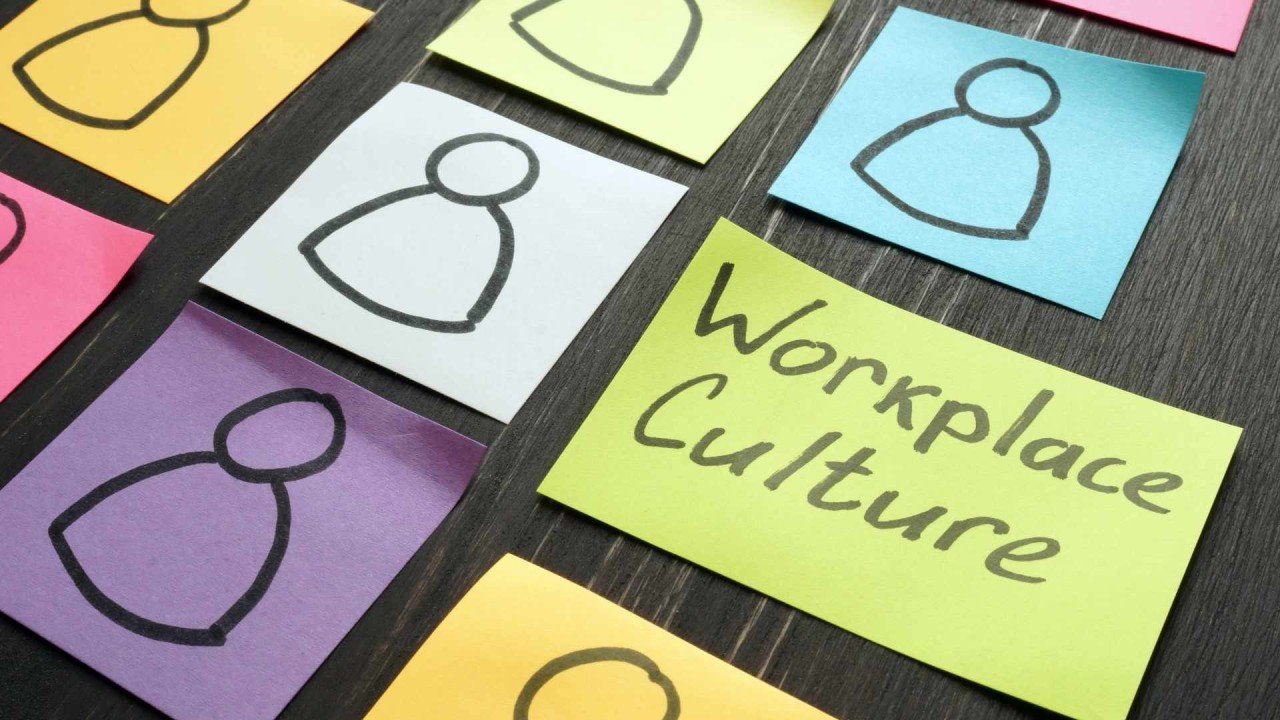Workplace culture is often likened to the wind. It is invisible, yet its effect can be seen and felt. It can propel an organisation forward or hold it back.
It is something that every organisation thinks about and strives to influence.
In this article, we explore what a workplace culture is and what we believe to be essential characteristics of a healthy workplace culture.
What is Workplace Culture?
Workplace culture can be described in many ways, but it essentially refers to the values, beliefs, attitudes, systems, and practices that characterise an organisation. It emerges and evolves over time and defines how people approach their work, interact with each other and ultuiimately feel.
A healthy workplace culture fosters productive relationships, drives engagement, and cultivates a sense of belonging. In contrast, a toxic culture can lead to low morale, high turnover, and diminished productivity.
Essential Characteristics of a Healthy Workplace Culture
Creating a healthy workplace culture isn’t just about policies or motivational posters. It’s about nurturing an environment where everyone feels valued, supported, and inspired to do their best work. While there’s no one-size-fits-all formula, there are a few things we think are essential to creating a positive workplace culture:
People Feel Aligned
Alignment is much more than having people agree on the same goals. It occurs when people really get what the organisation stands for, and wholeheartedly believe in how work should be done and how people should treat each other. This kind of alignment is built over time through open communication and having leaders consistently role model the right behaviours. When people are aligned, you can see it in the way they collaborate, tackle challenges, and stay engaged with their work.
People Feel Safe
Psychologically safety occurs when people feel they can be themselves, share their concerns and fears, and even mess up without worrying about being judged or punished. Creativity and innovation thrive when people feel safe as they are more likely to take risks, try new things, and step out of their comfort zone when they know they’re supported. A truly safe environment is one where everyone feels comfortable speaking up, challenging the norm, and supporting each other.
People Feel Involved
Being involved at work is much more than attending meetings. It’s about having a real say in decision making and direction setting. When every voice matters, people are encouraged to share their thoughts and take part in decisions that impact the organisation. When they feel involved, they’re more engaged and invested in the organisation's success because they feel like they’re truly part of it. This sense of ownership leads to pride in their work and for the organisation they work for.
People Feel In Control
Purpose, autonomy and mastery are huge intrinsic motivators. When people feel in control of their career development, they tend to be more engaged and perform better. A healthy workplace encourages individuals to seek out learning opportunities and challenge themselves, without needing constant approval. It’s about fostering a growth mindset where people are always looking for ways to improve and take on new challenges. When people feel in control, they’re more adaptable, resilient, and motivated to succeed.
People Feel Empowered
Empowerment is not just about delegating tasks. It's about trusting people to make decisions and take charge of their development and growth. It’s about giving people the freedom to lead and solve problems in their own way. This trust fosters creativity and encourages initiative. People who feel empowered know their contributions matter and they’re accountable for their actions. When people are empowered, they’re more likely to innovate, take risks, and make meaningful contributions that can drive real change.
People Feel Equal
Equality at work isn’t just about hitting diversity quotas or meeting legal requirements. It’s about creating a culture where everyone, regardless of age, gender, race, religion or sexual preferences, has the same opportunities. A healthy workplace celebrates diversity and makes everyone feel like they belong by providing fair access to growth opportunities, transparent evaluations, and merit-based recognition.
In Conclusion
A healthy workplace allows people to thrive and contribute to an organisation's overall success and sustainability. When people feel supported, valued, and engaged, they’re more motivated to do their best work.
Fostering a healthy workplace culture doesn't happen overnight. It is an ongoing process requiring attention and commitment from people at all levels.


